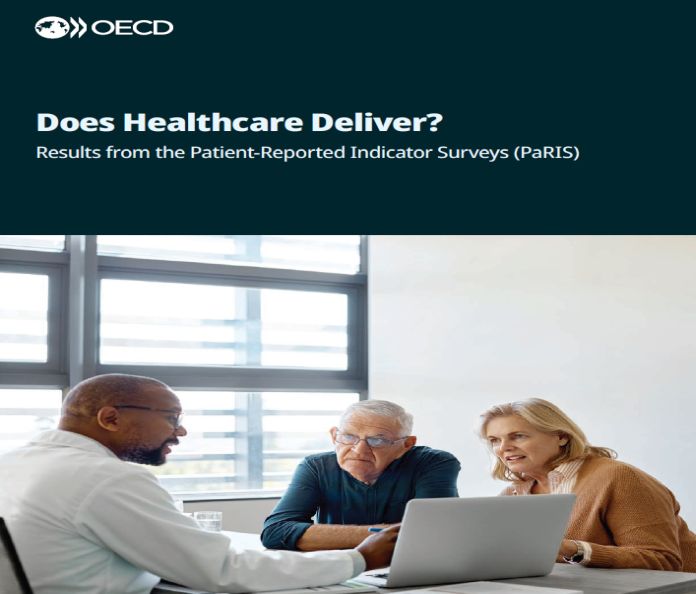 PARIS, France – There is an urgent need to adapt healthcare systems to better meet the needs of the growing number of people with chronic conditions, according to the findings of the first international OECD survey of patients with chronic health conditions, the Patient-Reported Indicator Surveys (PaRIS).
PARIS, France – There is an urgent need to adapt healthcare systems to better meet the needs of the growing number of people with chronic conditions, according to the findings of the first international OECD survey of patients with chronic health conditions, the Patient-Reported Indicator Surveys (PaRIS).
The survey collected data from about 107, 000 patients aged 45 years and older, and 1,800 primary care practices across 19 countries. It aims to shed light on the health outcomes and experiences of people living with chronic conditions, such as hypertension, arthritis, diabetes, heart disease or cancer, which are managed in primary healthcare settings.
Eighty-two percent of primary care users who took part in PaRIS live with at least one chronic condition, 52 percent live with at least two conditions, and 27 percent live with three conditions or more.
Most people report positive care experiences and better health results, compared to the OECD average, in Switzerland, and in the United States focusing on the population aged 65 years and older in Medicare. In Australia, Czechia, France and Norway, most people also report positive experiences and outcomes of care. Countries with below-average scores on more than half of the indicators are Greece, Iceland, Portugal, Romania and Wales (United Kingdom).
“People living with chronic conditions report better physical health, mental health and well-being when they receive healthcare that is centred on their needs,” OECD secretary-general Mathias Cormann said. “PaRIS also shows that, while countries that spend more on health tend to achieve better health outcomes, it is possible to achieve strong performance also with lower levels of health spending.”
PaRIS finds that four in ten patients do not feel confident in managing their own health; additionally, four in ten do not trust their healthcare system. To deliver better health, healthcare needs to dedicate more time to patients. 64 percent of people who report that their primary care professional spends enough time with them trust the healthcare system, compared with 34 percent for people who say that their primary care professional does not spend enough time with them. Healthcare must also be better tailored to people’s needs. Only one-quarter of patients report having a care plan prepared for them by their health professional.
Healthcare needs to be ‘trouble-free’ and reliable, says the report: 45 percent of people who have experienced a negative episode in the healthcare system that could potentially cause them harm, such as not getting an appointment when needed or receiving a wrong or delayed diagnosis or treatment, trust their healthcare system, compared with 70 percent of people who have not experienced such a negative episode.
Other key highlights from PaRIS include:
- The well-being of patients deteriorates rapidly with the number of chronic conditions. The average well-being score (measured by WHO-5, a scale from 0 to 100) is 14 points lower among people with three or more chronic conditions compared to people with one chronic condition.
- There are large gender gaps in patients’ experiences and outcomes. Out of all people with chronic conditions, 74 percent of men are in good physical health compared to 65 percent of women, and 86 percent of men are in good mental health compared to 81 percent of women. This confirms the gender-health paradox: women tend to live longer than men, yet they report worse health outcomes. Women also report to have less trust in healthcare and are less likely to experience good quality of care.
- Digital technology is not being used to its full potential in healthcare. Only 7 percent of patients with chronic conditions report having used a video consultation in primary care, and 17 percent report having accessed their primary care medical records online. Moreover, only 43 percent of patients with low education agree that their primary care provider’s website is easy to use.
The report serves as a call to action for healthcare systems to involve patient perspectives more closely in decision-making. Its findings can inform national healthcare strategies, improve service delivery, and support the shift towards more integrated and people-centred models of care.
The full PaRIS Flagship Report is available for download here.





